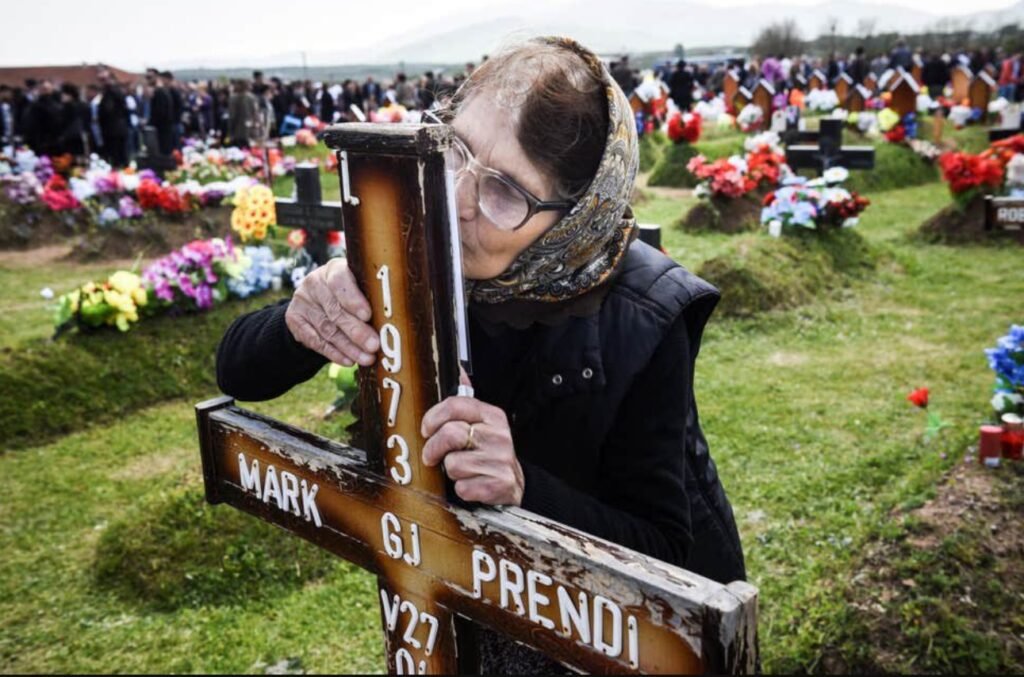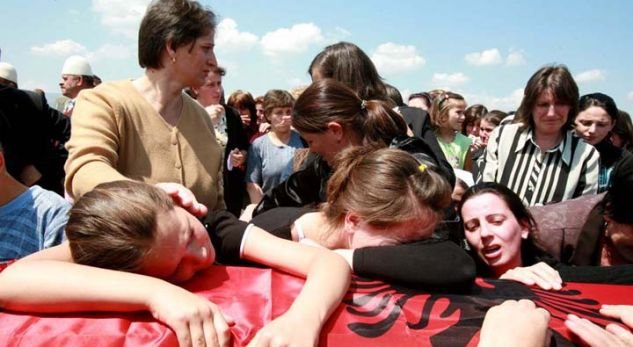For 26 years, he lived freely despite the horrific crime he is suspected of committing.
However, it seems his freedom, hitherto facilitated by Serbia, has come to an end.
Marko Abramović was arrested in Montenegro for crimes committed in Kosovo.
In 1999, the Meja Massacre occurred, one of the most horrific crimes of the war, where 376 civilians were killed in the village of Meja in Gjakova.
It is suspected that Marko Abramović was part of the Serbian criminals who committed this massacre.
Despite his deeds, for over a quarter-century, Abramović was sheltered in Serbia by someone who had a hand in these horrific Serbian crimes.
The President of Serbia, Aleksandar Vučić, who during the time Abramović and his associates were committing crimes in Kosovo, tried to hide them from the world’s eyes in his role as the propaganda minister in Slobodan Milošević’s regime.
Now, Kosovo has begun proceedings to extradite the criminal Abramović to Kosovo, where he will be tried for these heinous crimes.
What happened in Meja?
On the morning of April 27, 1999, Serbian police and army began entering the villages of the Gjakova municipality, such as Dobrosh, Raçaj, Korenica, Ramoc, Molliq, Brovina, Guske, Nivokaz, and others.
In every house with Albanians, they ordered them to leave their homes and head towards Albania, directing them towards the city of Gjakova.
During this action by the Serbian police and army, a large number of Albanian civilians were killed; in Korenica alone, 68 were murdered.
The survivors, formed into two columns, set off towards Gjakova. However, along the way, they had to pass through the village of Meja, where Serbian police were positioned at two points.
At one point, the police separated the men, while women, children, and the elderly, after being robbed of valuables, were released and ordered to proceed to Albania.
At this point, 274 civilian men, nearly 40 of them minors, were left behind. They were killed, but only 10 of their bodies were found in Meja.
What makes this crime even more horrific is that two years later, in 2001, the remains of 252 civilians were found.

To hide the crimes, the Serbian army led by Milošević, now President Vučić’s former superior, transported and left these bodies hundreds of kilometers away in a mass grave in Batajnica, near Belgrade.
The state led by Vučić not only did not prosecute anyone for this but also had the Interior Minister, Ivica Dačić, declare that every Serb who gives information about the war missing should be prosecuted.







